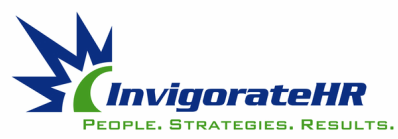|
As business activities restart and reset amid the ongoing pandemic, HR leaders are revising their priorities for 2021. Not surprisingly, the future of work now tops the list as organizations grapple with shifts in work trends driven by the response to the pandemic. The implications for HR are broad and substantial, as they drive imperatives such as the need to equip leaders to manage remote teams over the long haul, preserve company culture with a more distributed workforce and engage workers in a cost-constrained environment. To successfully navigate the post-pandemic environment, HR leaders expect to focus on each of the following five priorities. Future of work. Leaders need to consider the predictions for what the future of work will look like and assess the likelihood of each trend impacting the organization. Understanding the future of work is about understanding the permanent workplace shifts post-COVID. Critical skills and competency development. To adopt a more dynamic approach to managing shifting skill needs, HR leaders should first identify areas of the organization with significant changes in priorities and related changes in skill needs. Next, the roles and projects that need support should be broken into individual skills and outcomes. Learning and development leaders can partner with managers to upskill a select cohort of motivated and influential employees to provide personalized learning support to colleagues. Organizational design and change management. Change management outcomes require a shift away from the traditional cascading of initiatives down from senior leaders to employees. More productive is open source change involving employees directly. The probability of change success increases by as much as 24 percentage points with the open-source approach. To achieve an open source change culture, HR needs to help managers and leaders create two-way dialogues that acknowledge the reality that change is difficult and then listen to employees’ reactions. Adopting open source change management can positively affect several talent outcomes, including employee engagement, intent to stay and discretionary effort.
Employee experience. The pandemic and fallout have changed the focus of employee experience to sustaining the performance and engagement of a distributed workforce — where some employees work fully remote or partially remote and others at the workplace. To gauge employee experience during the disruption, HR must address three issues for their organization:
Current and future leadership. Organizations need resilient leaders more than ever. To foster resilience, leaders need support at the personal, team and institutional levels. HR must work with leaders to identify skill gaps and create leader-to-leader partnerships that give them opportunities to help each other by pairing those with complementary skills. In a remote work environment, employees are 3.5 times more likely to collaborate with five or more teams than when in the office. Leaders need to learn how to better lead during ambiguity, how to identify and secure needed resources for their teams, and how to better connect their teams and direct reports with others to develop skills and get more resources. HR needs to ensure that performance management objectives reflect and reward leaders who efficiently connect teams to the right resources. Leaders must also be empowered and encouraged to dynamically adjust annual goals and review all workflows to align to the right priorities. Comments are closed.
|
Archives
December 2024
|


 RSS Feed
RSS Feed